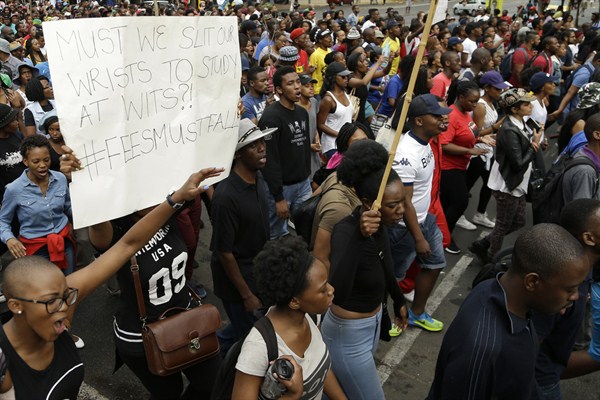Students have been rallying at South Africa’s universities since Oct. 13 to oppose a planned 11.5 percent tuition hike, with public investment in education declining across the country. Protests came to a head Wednesday, when students in Cape Town marched on Parliament and clashed with police officers wielding stun grenades and tear gas, leading to numerous injuries and arrests. Protests have spread across the country, and classes have been suspended at 15 universities.
The wave of protests comes amid a season of discontent among South Africa’s university students, primarily from the University of Cape Town—one of the most prominent academic institutions in the country and continent. Its students have pointed to the university’s underrepresentation of black South Africans: Less than a quarter of the university’s students, and only 5 percent of faculty, are black, while black South Africans are 80 percent of the country’s population. Higher fees, the students say, will perpetuate these inequalities, as poverty disproportionately plagues the country’s black communities.
The South African government contributes just 0.76 percent of GDP to universities, but enrollment has increased by 70 percent since 2001.

